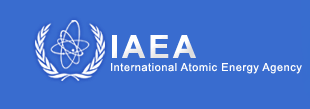Speaker
Mr
Christian Day
(Germany)
Description
Control and management of the fuel and fusion product streams is one of the most difficult issues for fusion power plant development. This function is provided by the fusion fuel cycle and addresses the vacuum pumping systems, the fuelling systems, the tritium plant systems and the in-vessel components, especially the divertor and the breeding blankets with their associated periphery. The design of these systems decides the accumulated tritium inventories and the processing times of the unburnt fuel, which both must be absolutely minimised. As main tool to match this requirement, a simplified fuel cycle architecture has been developed based on the concept of Direct Internal Recycling (DIR) of the unburnt fuel close to the divertor. Advantages and compromises of this concept will be discussed.
In all areas where ITER does not serve as a convincing basis for technology scale-up, new technologies have to be developed. This paper is reporting results of ongoing activities in EU to assess the fuel cycle systems of DEMO. It will go through the current state of technology, address the technical readiness, identify the areas which are considered to require essential supporting R&D towards a functional system for a reactor, and propose potential solutions together with experimental information – if available - or outline R&D paths for their development.
Collaboration (if applicable, e.g., International Tokamak Physics Activities)
EFDA
Country or International Organization of Primary Author
Germany
Author
Mr
Christian Day
(Germany)
Co-authors
Dr
Beate Bornschein
(Karlsruhe Institute of Technology, Association EURATOM-KIT)
Dr
Boris Weyssow
(EFDA Close Support Unit Garching)
Dr
David Demange
(Karlsruhe Institute of Technology, Association EURATOM-KIT)
Dr
Michael Kovari
(Association EURATOM-CCFE)
Prof.
Robert Wolf
(Max-Planck-Institut für Plasmaphysik, Association EURATOM-IPP)
Mr
Thomas Giegerich
(Karlsruhe Institute of Technology, Association EURATOM-KIT)

